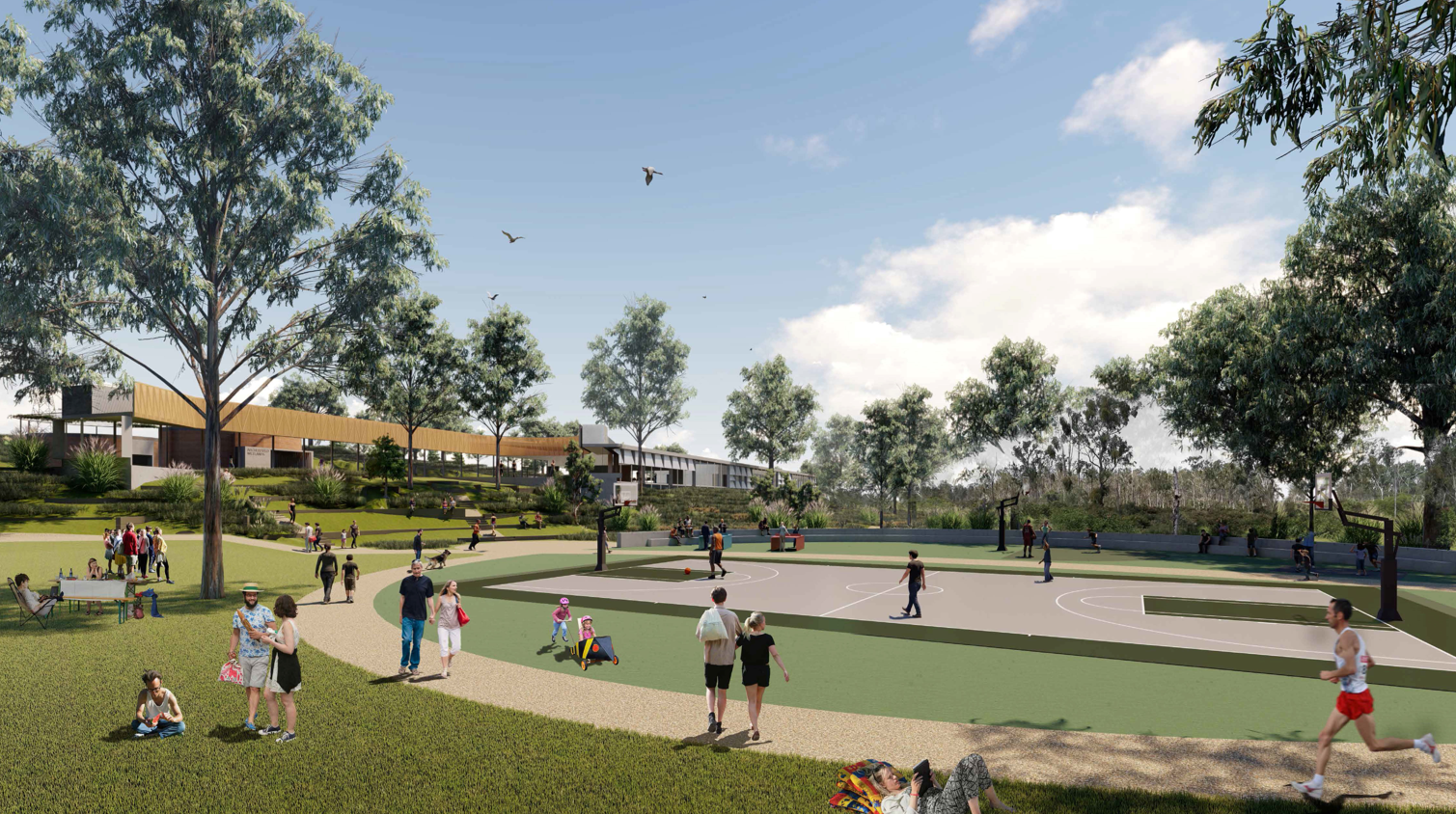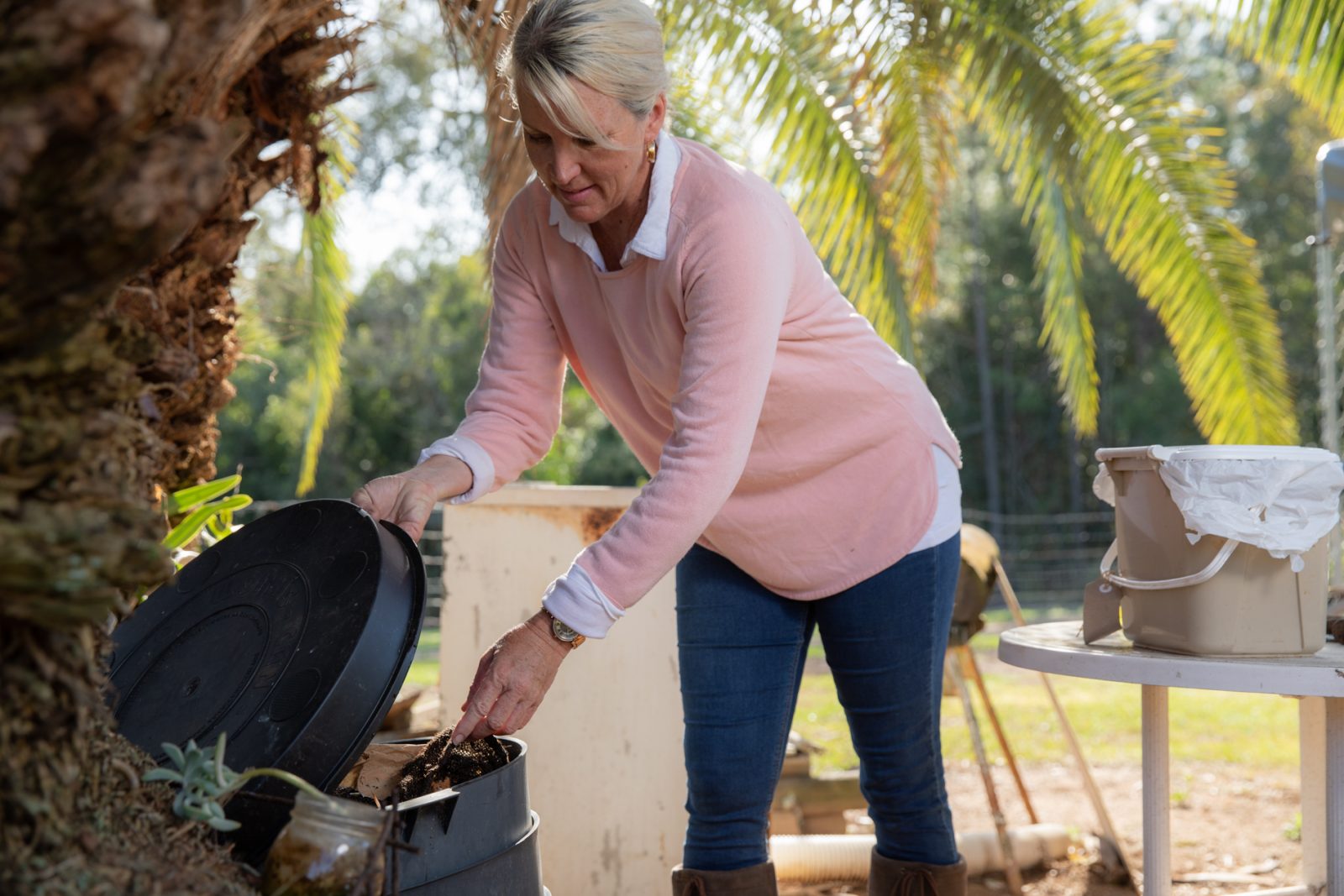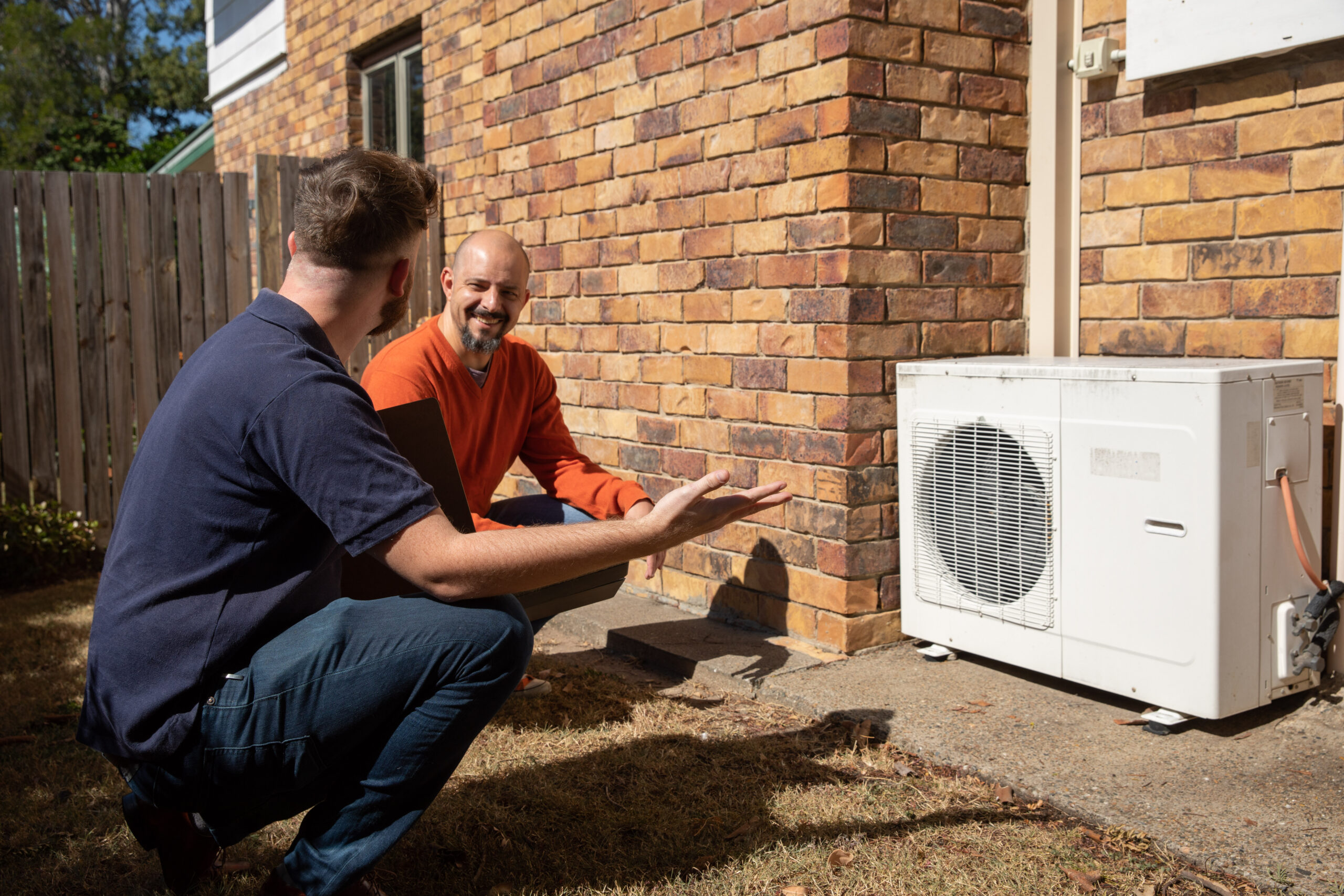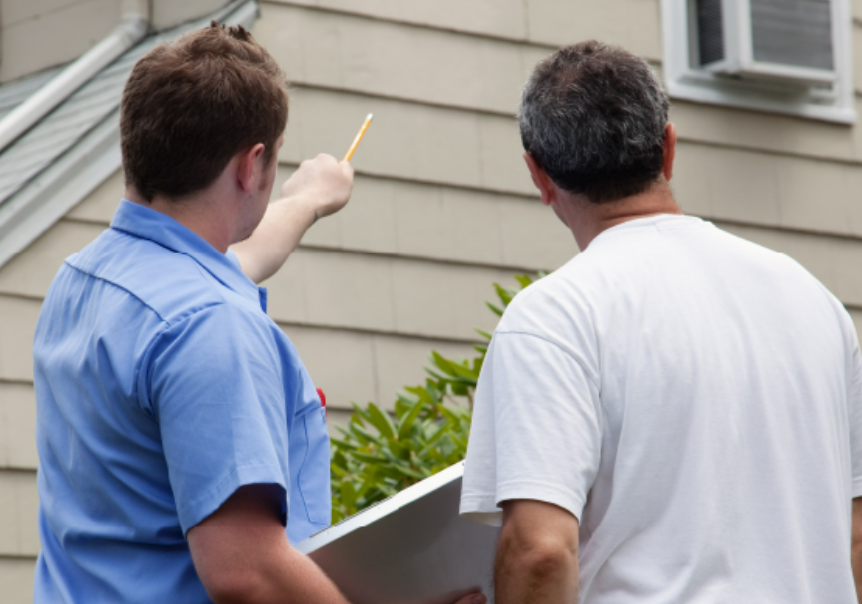The Debono / Wee household
The story of a Brisbane Carbon Challenge champion household.
Household:
COUPLE
Dwelling:
APARTMENT
Ownership:
RENT
Total emissions reduction: 28%
Original emissions:
4.5 tonnes
Transport: 4.3 tonnes
Waste: 0.2 tonnes
Energy: N/A
Reduced emissions:
3.2 tonnes
Transport: 3.2 tonnes
Waste: 0.02 tonnes
Energy: N/A
NOTE: Home energy emissions have been excluded from the Debono/Wee results as electricity consumption data was not available to make a before and after comparison.
About the household
Miriam Debono and Nicholas Wee live in a rented apartment in south Brisbane. Miriam joined the Brisbane Carbon Challenge with a keen interest in sustainability, which meant she was already making good progress with lower-than-average household emissions. The challenge equipped her with an emissions reduction action plan and resources to help bring her husband Nicholas along on the low-carbon journey, and together they managed to reduce their transport and waste carbon emissions by a further 28%.
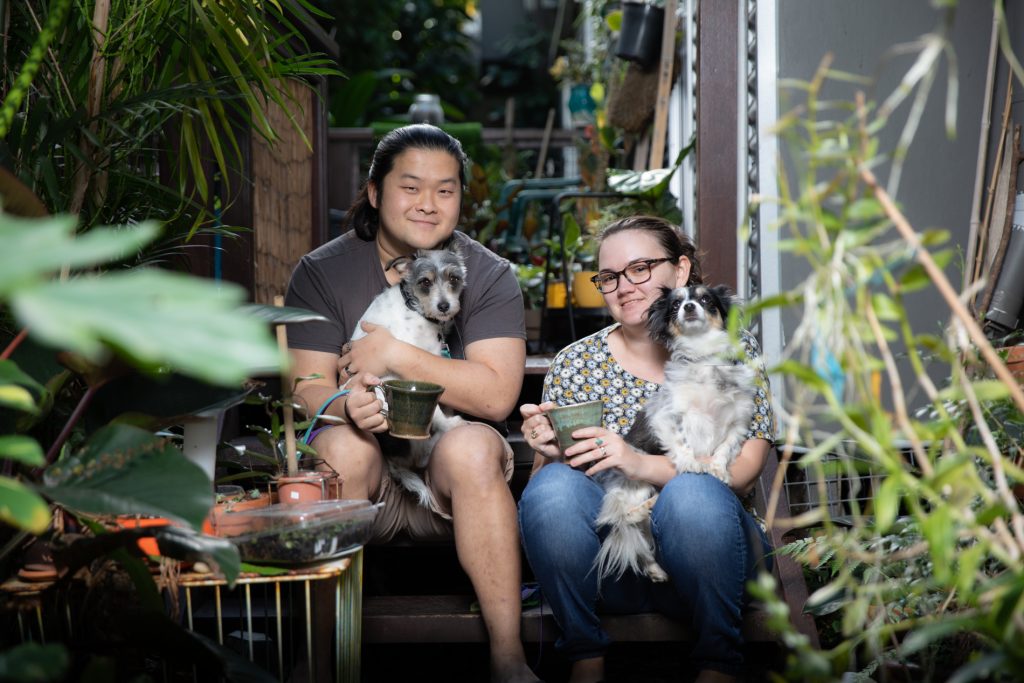
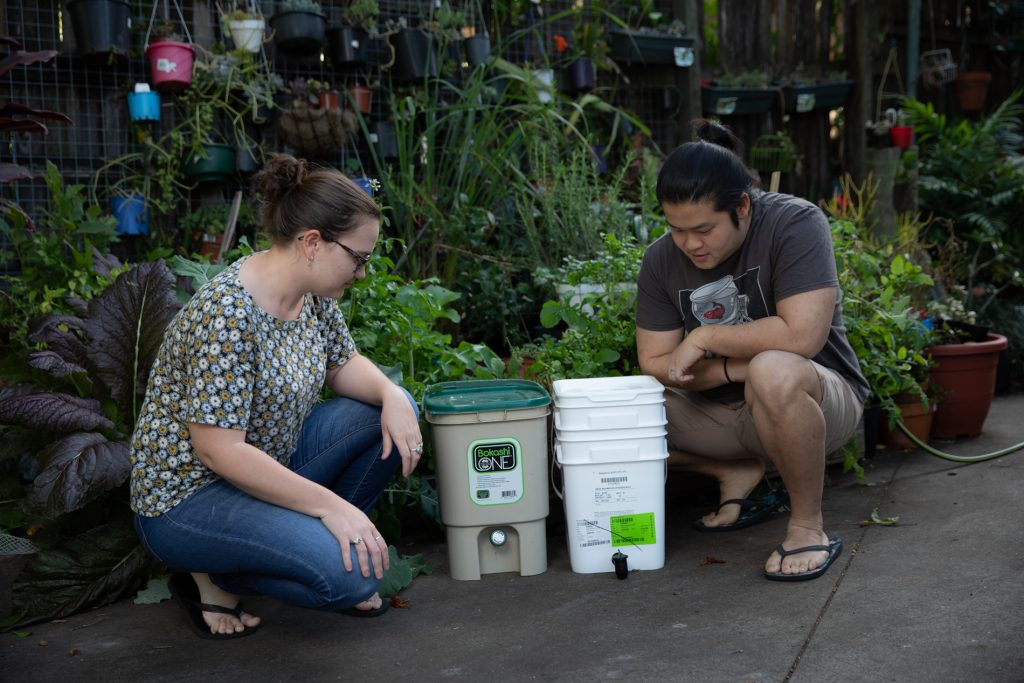
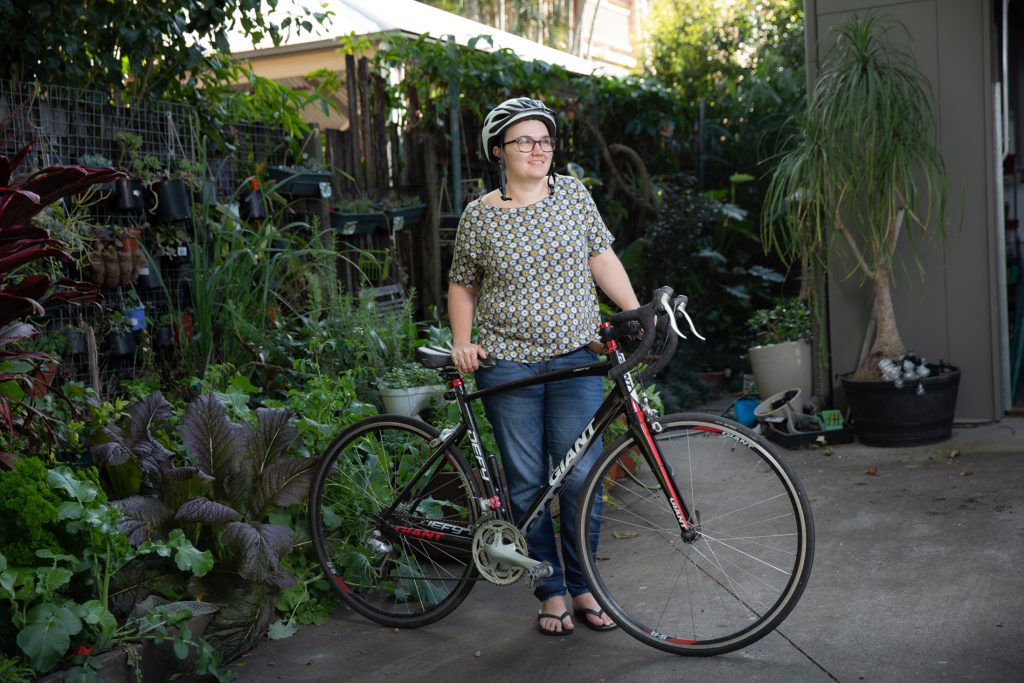
“My husband is definitely more aware of the waste he creates due to the Brisbane Carbon Challenge.“
Miriam Debono
Successes
Food waste to flourish garden
As seen above, the Debono/Wee household highlighted that it’s possible to create a thriving garden in an apartment complex, nourished by food waste turned compost. The couple has a variety of compost solutions – including bokashi bins and worm farms – to divert all of their cooked food waste, vegetable and fruit scraps from landfill. They use the compost, worm tea and bokashi tea to support their flourishing courtyard vegetable garden.
Reduced reliance on their car
Miriam and Nicholas reduced their transport emissions by 25% by using their car less and switching to public transport and active travel. Miriam estimated that she used public transport around 40% more for her weekly commute to her university. She also borrowed a bicycle from her mum so she could sometimes ride to the shops instead of driving. To help boost her confidence while riding, Miriam joined a bike maintenance workshop, which she said was “very useful, especially for learning how to change a tyre”.
Challenges
Energy is included in rental costs
Miriam and Nicholas live in a rental complex that includes electricity use in their rental fees. This means the couple doesn’t receive bills showing how much electricity they’ve used and, as their weekly rent remains fixed, they don’t benefit financially from actions to reduce their usage, making it harder to invest in low-carbon solutions that involve an upfront cost.
As part of the program, Miriam and Nicholas received a home energy monitoring system, which allowed them to see for the first time how they were using electricity in their home and identify ways to change their energy habits for the better. With full visibility of their electricity use and the support of the program, Miriam and Nicholas were motivated to take several low-cost energy-reducing actions, such as using a fan instead of the air conditioner, draught-proofing their apartment doors, switching off lights and appliances when they weren’t being used and installing a low-flow showerhead.
With no historic data available for comparison, the program couldn’t directly measure the results of these changes, however, it’s estimated they may have reduced the couple’s electricity consumption by up to 30%. While Miriam and Nicholas were unable to realise the cost-savings of their actions, they hope to continue reducing their carbon footprint using their home energy monitoring system to guide their energy habits.
Miriam and Nicholas’ low-carbon action plan:
- replaced private vehicle use with active travel (cycling)
- replaced private vehicle use with public transport
- installed draught-sealing on doors
- used fans instead of the air conditioner
- adjusted set point on the air conditioner to 24 degrees in summer
- upgraded fridge to a more efficient model
- used small appliances instead of the oven
- switched off lights when not in use
- switched off appliances at the wall when not in use
- installed a low-flow showerhead
- took shorter showers
- reduced food waste
- composted food waste.

